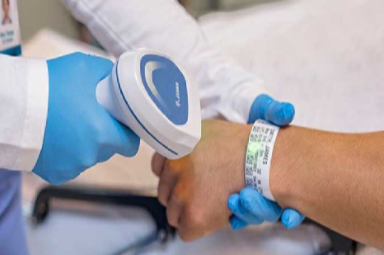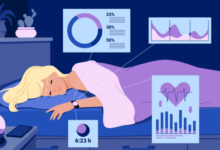How Barcode Scanners Simplify Hospital Operations

In today’s world of healthcare, efficiency and accuracy is key. Hospitals are always looking for ways to improve patient care and reduce errors. One solution that has proven to work is barcode scanners. This simple yet powerful tool connects the physical world to digital records so information flows smoothly and accurately across patient care stages.
But how does barcode scanning help with hospital operations? From patient wristbands to medication packaging and medical equipment, barcode technology is key to the right care at the right time. By scanning those barcodes, healthcare professionals can retrieve or update information quickly, reduce errors, increase productivity and most importantly patient safety. Every scan is a safeguard to ensure critical information is recorded correctly. Modern hospitals are using barcode systems to streamline everything from patient admissions to inventory management so the technology is essential to delivering great care.
Inventory Management and Tracking
One of the biggest challenges hospitals face is managing their vast amounts of supplies, medication and equipment. Traditional inventory management methods rely on manual data entry which is time consuming and error prone. Even small mistakes in tracking inventory can have big consequences, like supply shortages or overstocking that ties up valuable resources. For example running low on life saving medication or essential surgical equipment can disrupt patient care, while excess inventory wastes money and storage space.
Barcode scanner technology has changed the way hospitals manage inventory. By scanning items as they are received, used or restocked hospital staff can ensure inventory records are always accurate and up to date. Real time tracking reduces human error and allows hospitals to maintain the right balance of supplies. For example instead of manually counting medical supplies and entering into a system a quick scan of each item updates inventory in seconds saving time and effort.
This applies to medication tracking too. Barcodes on medication packaging can be scanned to confirm details like expiration dates, dosages and stock levels. When a medication is running low the system can alert staff to reorder it so supplies are always available when needed. So barcode scanners help hospitals avoid costly mistakes, maintain stock levels and prevent waste of expired or unused supplies.
Patient Care and Safety
Patient safety is one of the most important aspects of healthcare and barcode technology is key to reducing errors related to patient identification and medication administration. In a busy hospital where healthcare professionals are managing multiple patients and treatments, even small identification mistakes can have big consequences like administering the wrong medication or performing the wrong procedure.
Barcode scanners are a safeguard against these errors. Each patient is given a wristband with a unique barcode that links to their medical records. Before any treatment is given a healthcare professional can scan the wristband to confirm the patient’s identity and ensure the right treatment is being given. This reduces the chance of mistakes and builds trust between patients and medical staff.
In medication management barcode scanning offers an extra layer of protection. For example before giving a patient their medication a nurse can scan the patient’s wristband and the medication’s barcode to confirm the drug, dosage and time is correct. This ensures the patient gets the right medication at the right time, reducing the risk of adverse drug events (ADEs). In fact studies have shown barcode medication administration (BCMA) systems can reduce medication errors by up to 80% making them an essential tool in improving patient care.
By creating a more precise and reliable process for medication administration and patient identification barcode scanners allow healthcare professionals to focus more on patient care knowing the technology has their back when it comes to safety.
Efficiency and Administrative Tasks
In addition to safety and accuracy barcode scanners help with administrative tasks which are time consuming and error prone. Healthcare professionals spend a lot of time on paperwork, data entry and other administrative tasks. These tasks are necessary but take away from time that could be spent on patient care.
Barcode scanners automate many of these tasks so hospital staff can work more efficiently. For example instead of manually entering patient information into the hospital’s electronic health record (EHR) system a quick scan of the patient’s wristband or medical documents updates the necessary information instantly. This automates paperwork and minimizes the chance of errors caused by manual data entry.
Medication administration is another area where barcode scanners make a big impact. Instead of having to manually log each dose given to a patient a quick scan records the details automatically so records are always up to date. This reduces the administrative burden and ensures patients’ medication history is complete and easily accessible to healthcare professionals.
By reducing administrative tasks barcode scanning allows healthcare professionals to focus on what really matters: patient care. The efficiency gained from barcode technology translates into better operations and better patient outcomes.
Real-time Data and Decision Making
One of the biggest benefits of barcode scanner technology is real-time data, which is essential in fast-paced healthcare environments. Whether it’s tracking medication, monitoring patient status, or managing inventory, real-time data allows healthcare professionals to respond to changes and ensure care is delivered without delay.
For example barcode scanners make it easy to monitor inventory in real time. If a specific medication or supply is running low the system can alert staff so they can reorder before it’s completely out of stock. This avoids stock shortages and ensures all supplies are on hand when needed.
In patient care real time data is just as valuable. For example if a patient’s condition changes suddenly barcode scanning allows healthcare professionals to update the patient’s medical records instantly so all staff are aware of the latest information. This immediacy enables better communication and coordination between healthcare professionals and faster intervention when needed.
Plus, with barcode scanners integrated with hospital and lab information systems, healthcare professionals can access the latest information on patient treatments, medications, and other important details. Easy access to real time information means better decision making and better patient care.
The Future of Barcode Technology
As barcode scanner technology evolves its impact on hospital operations will only get bigger. New developments in scanning technology such as 2D barcodes and RFID (Radio Frequency Identification) tags are already making healthcare operations more efficient and accurate. These advancements allow for more detailed tracking of patients, medications and equipment so hospitals can streamline their processes and reduce errors.
Plus as hospitals move to electronic health records and other digital systems barcode technology will play a big role in tying together all aspects of patient care so every step of a patient’s journey through the healthcare system can be tracked and managed. From admissions to discharge barcode scanners will be an essential tool to ensure hospitals run smoothly and patients get the best care.
Read more: Simple:8kc7c3qykwu= Rhythm in Art
The New Normal for Hospital Efficiency
Barcode scanner technology is no longer a nice to have it’s a must have to improve accuracy, efficiency and patient safety. From better inventory management to reducing administrative burden barcode scanners are changing how hospitals work. By providing real time data and streamlining critical processes these tools allow healthcare professionals to focus on what really matters: patient centred care.
Hospitals that embrace this technology are not only enhancing their operations but also positioning themselves to provide better care in an increasingly complex healthcare environment.






